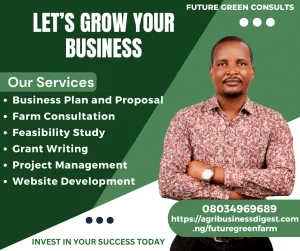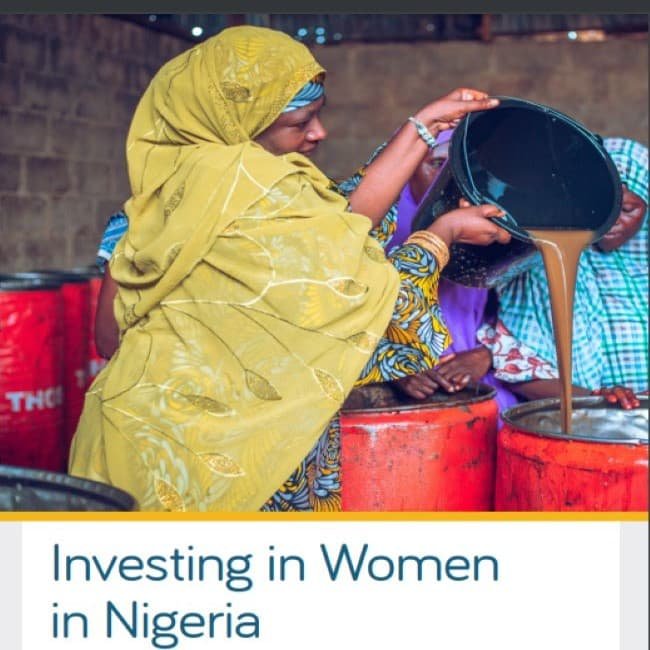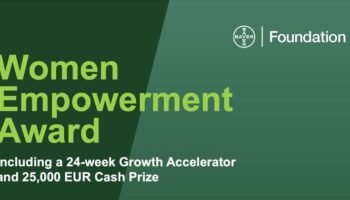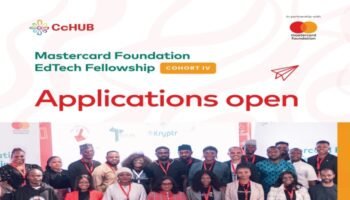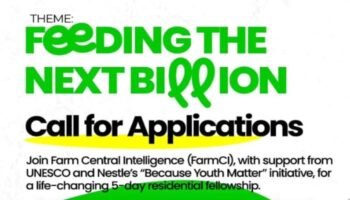The Africa Enterprise Challenge Fund is pleased to announce the Investing in Women in Nigeria (IIW-Nigeria) Programme to enhance women’s economic empowerment by promoting women’s participation in the traditional and non-traditional agribusiness sectors.
The SME Investment Window Round 2 is a component of the Investing in Women in Nigeria (IIW-Nigeria) programme, a CAN $15.7 million programme funded by Global Affairs Canada (GAC). This element of the fund comprises non-repayable grants totaling CAN $7.75m. Implemented by the AECF, the programme seeks to enhance women’s economic empowerment by promoting women’s participation in the traditional and non-traditional agribusiness sectors.
The programme seeks to:
- Enhance private sector engagement of women as economic actors across the key agricultural value chains.
- Increase private and public sector investment in women-owned Small and Medium Enterprises (SMEs) as well as other businesses that create economic opportunities for women.
- Reduce systemic gender inequalities that hinder women’s effective economic participation in climate-smart agriculture.
Investing in Women in Nigeria (IIW-Nigeria) Programme Fund objectives
- Provide finance for small and medium-sized enterprises and finance institutions that use innovative technologies and other novel solutions to create gender-transforming, climate-smart economic opportunities for women, e.g., through employment creation, market linkages, and suppliers of inputs/produce/services along the value chain.
- Provide targeted business development technical assistance and capacity building on gender mainstreaming for businesses.
- Advocate and increase awareness of the business case for investing in women in Kano.
- Provide incentives for innovations that will lead to sustainable widespread adoption of climate-smart practices in the agriculture sector and increase the resilience of both companies and the women that they work with to climate shocks.
Geography and Focus Area
- Funding is available for private sector women owned/led SMEs that are commercially active in agricultural value chains in Kano with demonstrated linkages to women entrepreneurs operating in agricultural value chains in Kano.
- Funding will target agricultural value chains that demonstrate high engagement and impact for women.
Eligibility for Investing in Women in Nigeria (IIW-Nigeria) Programme
To be eligible for funding, private sector companies must meet the following criteria:
- Be a private sector enterprise that is aligned with the focus areas, i.e., geographical scope within agricultural value chains.
- Companies must demonstrate that they employ women, provide products and services that benefit women farmers and agro-business entrepreneurs, and/or include women in their supply chain as suppliers of raw materials and/or distributors of products and services in a substantial/dominant manner.
- Demonstrate female ownership or have a management that is predominantly women-led, with a business model that delivers transformational benefits for women.
- Companies must demonstrate business models and commitments to increasing women’s representation as employees, customers, distributors, and/or suppliers and proactively address barriers to women’s participation in climate-smart agricultural value chains.
- Propose investment in innovative, climate-smart technologies or business solutions that are gender transformative for women across agricultural value chains and improve resilience to climate shocks.
- Be able to show commitment to match AECF funding based on the ratios stated in the matching contributions section below.
- Request grant funding within the stipulated range.
- Be compliant with fundamental laws and regulations in-country, including tax compliance laws.
- Be compliant with human rights, labor standards, and environmental management laws.
- Demonstrate commitment to gender equality and the empowerment of women, especially young women, in the conduct of the business.
- Be legally registered and physically established in Nigeria and must have operated for a period of not less than two (2) full accounting years at the time of application.
- MUST NOT be involved in any act of corruption. AECF requires that the applicant (including its staff, contractors, and suppliers) must not be involved in offering third parties, or seeking, accepting, or being promised by third parties, for themselves or any other party any gift, remuneration, compensation, or benefit of any kind whatsoever, which could be interpreted as an illegal or corrupt practice.
- MUST NOT be associated with prohibited activities by the Government of Nigeria, e.g., terrorism, money laundering, or be on a list of blacklisted businesses provided by institutions such as IFC (International Finance Corporation), USAID, UN, EU (European Union), etc, or provided under United Nations Security Council resolutions issued under Chapter VII of the UN Charter. The screening will be conducted for all applicants and associated parties on platforms such as https://sanctionssearch.ofac.treas.gov/, www.worldbank.org/debarr World-Check, EU sanctions list, etc.
Investing in Women in Nigeria (IIW-Nigeria) Programme Sectors
- Eligible businesses must demonstrate that their offerings are accessible and affordable, directly benefit women and young women, and encourage the adoption of climate—and gender-appropriate technologies, products, or services.
- Proposed initiatives can cover any part of the value chain but must demonstrate an ambition to address systemic challenges that keep women from more effectively engaging in agricultural markets to be eligible for funding. Examples of business models that will be attractive include (but are not limited to):
- Market aggregators providing reliable and new market opportunities for women or women-owned enterprises to increase their profits and incomes.
- Information and media companies providing market information services to women and women-owned enterprises through traditional and digital platforms.
- Electronic/technology services (markets, finance, technology, and knowledge) linking value chain actors to the products and services of women-owned SMEs.
- Processors and/or manufacturing companies and/or market agents creating economic opportunities for women through employment creation and/or as suppliers of produce/services along the value chain and employees.
- Production and distribution models that support local entrepreneurship and growth of SMEs and women groups within the agricultural value chains in Kano.
- Business models that provide incentives for women to access and adopt improved use of environmentally friendly and climate-smart solutions and technologies.
- Business models that address climate-smart solutions and technologies at the household, production, transportation, and processing levels in value chains.
- Information Technology companies providing digital platforms to create linkages between actors across value chains for Access to Inputs, Access to Market and or Access to Finance.
- Solutions that have linkages to multiple layers of agricultural value chains.
Funds Available
- Applicants are expected to submit a funding application justifying their requirements for the business and/or idea to be funded, the funding amount, and the project duration.
- Funding must be used for a specific project, e.g., introducing new services or products, scaling up an existing enterprise, or replication/expanding to a new market. Investees can apply for a range of funding depending on their development stage as follows:
- Minimum fund award CAN $ 65,000
- Maximum fund award CAN $ 1,300,000
- Funding will be in the form of non-repayable grants. Funding is subject to meeting match funding criteria (see the section on Matching Contribution). Businesses should apply for funding depending on their stage of development and capacity to absorb funding for the proposed project. The absorptive capacity of businesses will be assessed during the application process and may be deemed to be less or more than requested.
- Funding payments will be milestone-based, and disbursements will be based on mutually agreed-upon milestones that must be achieved/delivered. AECF may introduce other conditions on disbursements on an individual application basis prior to contracting.
- Duration of the funding agreement: 4 years.
How to Apply for Investing in Women in Nigeria (IIW-Nigeria) Programme
Click Here to apply and for more details
Application Deadline: Wednesday September 11, 2024 4:00 PM
Elevate Your Business With Our Expert Services!
